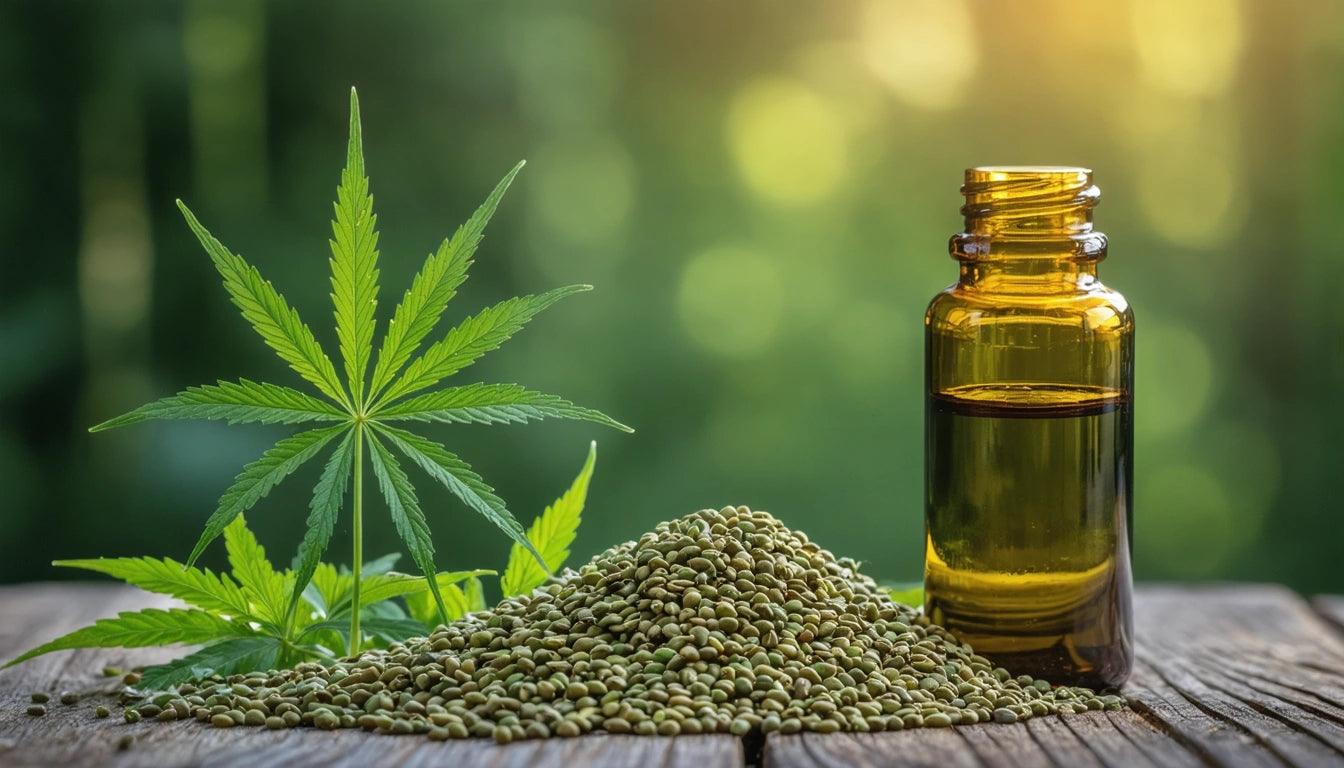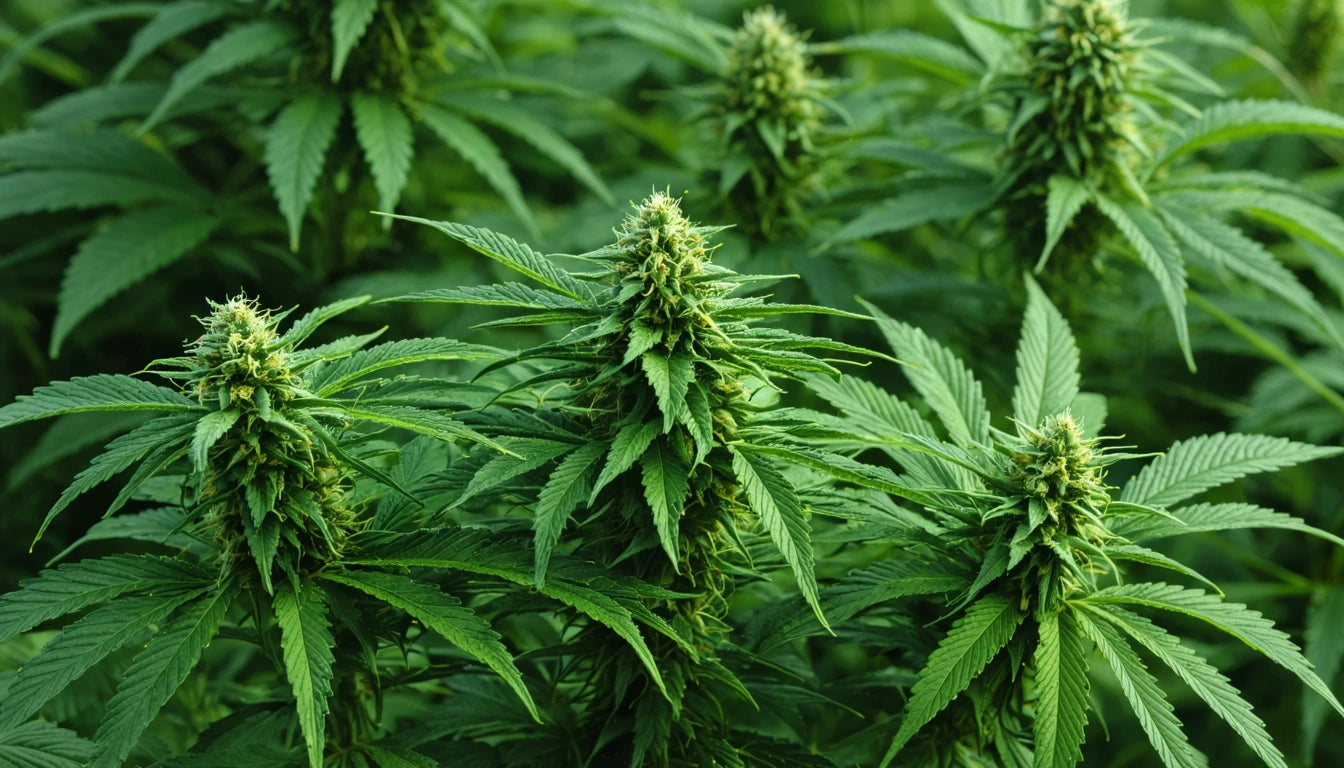Table of Contents
- Understanding Hemp Derivatives: Seeds vs. Extracts
- Hemp Seed Oil Composition and Production
- CBD Oil Explained: Extraction and Properties
- Comparing Hemp Seed Oil vs CBD Oil: Key Differences
- Common Misconceptions About Hemp Products
- Practical Applications and Uses
- Choosing the Right Hemp-Derived Product for Your Needs
Understanding the Differences Between Hemp Seed Oil and CBD Oil: Do They Contain CBD?
The hemp plant has given rise to numerous products that often cause confusion among consumers. Two of the most commonly misunderstood products are hemp seed oil and CBD oil. Despite coming from the same plant species, these oils have fundamentally different compositions, production methods, and uses. This guide clarifies the hemp seed oil vs CBD oil debate and answers the pressing question: does hemp seed oil contain CBD?
Understanding Hemp Derivatives: Seeds vs. Extracts
Hemp (Cannabis sativa) is a versatile plant that produces different derivatives depending on which part is processed. The distinction between hemp seed oil and CBD oil begins with their source within the plant:
- Hemp Seeds: Used to produce hemp seed oil, these are the small seeds of the hemp plant that contain nutritional oils but virtually no cannabinoids.
- Hemp Flowers and Leaves: These parts contain the resin glands (trichomes) where cannabinoids like CBD are concentrated. CBD oil is extracted from these parts.
This fundamental difference explains why these products have distinct properties and uses. According to studies on hemp-derived products, the part of the plant used significantly affects the final product's chemical profile.
Hemp Seed Oil Composition and Production
Does Hemp Seed Oil Contain CBD?
The short answer is no. Hemp seed oil does not naturally contain CBD in any meaningful amount. Hemp seeds themselves contain trace amounts to no CBD. Any CBD detected in hemp seed oil is typically due to contamination during processing when the seeds come in contact with other plant materials.
Hemp seed oil is primarily composed of:
- Omega-3 and Omega-6 fatty acids (in an optimal 3:1 ratio)
- Gamma-linolenic acid (GLA)
- Various vitamins (especially E and B vitamins)
- Minerals (including phosphorus, potassium, and magnesium)
- Antioxidants
The production of hemp seed oil involves cold-pressing the seeds, similar to how olive oil is made. This mechanical extraction method preserves the nutritional content without using solvents.
CBD Oil Explained: Extraction and Properties
Unlike hemp seed oil, CBD oil is specifically produced to contain cannabidiol (CBD) and other beneficial plant compounds. The production of CBD oil involves extracting cannabinoids from hemp flowers, leaves, and stems.
CBD oil typically contains:
- Cannabidiol (CBD) in varying concentrations
- Minor cannabinoids (depending on the extraction method)
- Terpenes and flavonoids
- A carrier oil (often MCT oil, hemp seed oil, or olive oil)
The extraction methods for CBD oil include CO2 extraction, ethanol extraction, or oil infusion. These processes are designed to preserve the cannabinoid profile while removing unwanted compounds.
Comparing Hemp Seed Oil vs CBD Oil: Key Differences
| Characteristic | Hemp Seed Oil | CBD Oil |
|---|---|---|
| Source | Hemp seeds only | Hemp flowers, leaves, stems |
| CBD Content | None to trace amounts | Varies (typically 5-20% or more) |
| Primary Uses | Nutritional supplement, cooking, skincare | Wellness supplement, therapeutic applications |
| Typical Color | Clear green to dark green | Golden to dark brown |
| Taste | Nutty, grassy | Earthy, bitter (varies with terpenes) |
When comparing these oils, it's important to consider their distinct purposes. Hemp seed oil is primarily a nutritional product, while CBD oil is used for its potential therapeutic effects related to the endocannabinoid system, as explained in this guide on CBD uses and interactions.
Common Misconceptions About Hemp Products
Do Hemp Hearts Contain CBD?
Hemp hearts (shelled hemp seeds) do not contain CBD. Similar to hemp seed oil, hemp hearts are derived from the seeds of the hemp plant, which naturally contain negligible amounts of cannabinoids. They are valued for their protein content and nutritional profile rather than any cannabinoid content.
How Much CBD is in Hemp Seed Oil?
The amount of CBD in pure hemp seed oil is effectively zero. Some companies may add CBD to hemp seed oil (creating a CBD-infused hemp seed oil), but this is not the same as natural hemp seed oil. When shopping for CBD products, it's essential to read labels carefully.
Our experience in the cannabis packaging industry has shown that proper labeling is crucial for consumer education. When products are packaged in high-quality, clearly labeled containers, consumers can make more informed choices about the hemp-derived products they're purchasing.
Practical Applications and Uses
Hemp Seed Oil Uses
- Culinary applications (salad dressings, dips)
- Nutritional supplementation
- Skincare (moisturizers, soaps)
- Hair care products
CBD Oil Uses
- Potential relief from discomfort
- Stress and mood support
- Sleep support
- Topical applications for skin conditions
Understanding the difference between hemp seed oil and CBD oil helps consumers select the right product for their specific needs. For nutritional benefits, hemp seed oil is ideal, while those seeking the potential therapeutic effects of cannabinoids should look for properly labeled CBD oil products.
Choosing the Right Hemp-Derived Product for Your Needs
When navigating the world of hemp products, consider these factors to make informed decisions:
- Read product labels carefully, looking for clear indication of CBD content (or lack thereof)
- Check for third-party testing results that verify cannabinoid content
- Consider your specific goals (nutritional benefits vs. potential therapeutic effects)
- Consult healthcare professionals before using CBD products, especially if taking medications
The distinction between hemp seed oil and CBD oil represents just one aspect of the complex hemp product landscape. As research on cannabinoids continues, consumers will benefit from increased clarity about what these products contain and how they might be used effectively.
By understanding what separates these two oils, consumers can make more informed choices, avoid misleading marketing, and select products that truly align with their wellness goals.











Leave a comment
All comments are moderated before being published.
This site is protected by hCaptcha and the hCaptcha Privacy Policy and Terms of Service apply.